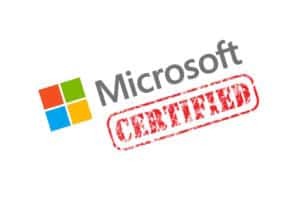In the vast sea of job hunting, standing out can feel like searching for a needle in a haystack—especially in HR. With a plethora of certifications out there, how do you know which one to pin your hopes on?
Today, you’ll get a clear compass guiding you through the PHR and SHRM certifications maze, ensuring you know exactly what you need to leverage your job hunt.
Quick Takeaways:
- Align your certification (PHR for operational roles, SHRM for strategic roles) with your career goals to maximize job market relevance.
- Both PHR and SHRM certifications enhance your resume, but SHRM may lead to higher starting salaries due to its strategic emphasis.
- Preparing for either the PHR or SHRM exams requires a commitment of 60-100 hours of study, leveraging a range of materials and community support for success.
What’s the real difference between PHR and SHRM certifications?
When hunting for the perfect HR job, you might feel like PHR (Professional in Human Resources) and SHRM (Society for Human Resource Management) certifications are two sides of the same coin. However, they’re more like apples and oranges, each with its unique flavor and nutritional value.
PHR is laser-focused on the technical and operational aspects of HR management, including laws and regulations in the US. It’s perfect for the HR professional poised at handling employee relations, benefits administration, and payroll. To snag this certification, you’ll need to have a blend of education and experience under your belt, typically at least one year in a professional HR position plus a Master’s degree, or up to four years with a high school diploma.
On the other side of the ring, SHRM is your go-to if you’re aiming to master the strategy behind human resource management. This certification zooms out to offer a bird’s-eye view, including global HR perspectives, making it ideal for those aiming to influence HR policies and strategies at the highest levels. SHRM certifications—either SHRM-CP or SHRM-SCP—require a similar mix of education and experience, but with a notable emphasis on strategic roles.
Which certification is better for your career path?
Choosing between PHR and SHR isn’t about deciding which is superior; it’s about aligning your certification with your career trajectory.
The PHR Certification: If you’re the type to dive deep into the gears and sprockets of HR operations, look no further. Imagine yourself navigating the intricacies of employee relations, benefits, and compliance issues daily. In that case, the PHR is your ticket to show employers you’ve got the chops.
The SHRM Certification: Picture yourself at the table where the big decisions are made, shaping policies and strategies that influence the entire organization. If that’s where you see yourself, the SHRM’s strategic focus is where you’ll shine. This certification tells the world you’re ready to guide any organization towards success, factoring in both local and global HR considerations.
How do PHR and SHRM certifications impact your job hunt?
In the ultra-competitive HR job market, having a certification can be your golden ticket. Yet, not all tickets are created equal, and the impact of a PHR vs. SHRM certification on your job hunt can differ greatly.
1. Resume Standout: Both certifications add a gleaming badge of honor to your resume. They tell hiring managers that you’re committed, knowledgeable, and ready to hit the ground running. However, depending on the focus of the position, one certification might edge out the other. For operational roles, PHR might catch the eye, while strategic positions might lean towards SHRM.
2. Job Opportunities: Companies often look for certifications as a way to thin the herd. Having either PHR or SHRM certification can open doors to advanced positions that might otherwise remain closed, with SHRM slightly leading the charge for executive-level openings.
3. Salary Impact: Certifications can also influence your paycheck. While both certifications increase your market value, SHRM-certified professionals often land higher starting salaries due to the certification’s strategic emphasis.
Insider Tip: What most don’t tell you is the community and networking opportunities both certifications offer. Engaging in the communities surrounding PHR and SHRM certifications can lead to mentorship, insights into HR trends, and even job opportunities before they hit the open market. It’s not just about having the certification; it’s about being active within these circles that can drastically improve your job hunt.
Remember, the journey doesn’t end after you’re certified. Stay engaged, network, and you’ll find that doors don’t just open—sometimes, they come off the hinges.
In your HR career, it’s not about just picking a certification—it’s about choosing a path that aligns with your aspirations and leveraging it to the fullest.
Sure, let’s dive right into the heart of the HR certification jungle – dissecting the merits and preparation paths of PHR and SHRM, shall we? Today, we’re tackling a couple of meaty topics: first, whether holding both the PHR and SHRM certifications is overkill or a career jackpot, and second, what journey awaits you as you prepare for either certification. Buckle up!
Can you have both PHR and SHRM certifications, and should you?
Absolutely, you can have your cake and eat it too—or in this case, hold both PHR and SHRM certifications. But the golden question is, should you? It’s like wielding a double-edged sword; it’s powerful but requires you to handle it wisely.
Let’s break it down:
Cost vs. Benefit : Both certifications require a significant investment, not just in dollars but in time and effort. However, flipping the script, imagine the leverage and versatility you present to a potential employer or your current organization. You’re essentially fluent in two major HR dialects. Unique? Quite.
Marketability : In the eyes of many employers, having both certifications isn’t overkill; it’s being marketable. It reflects a profound dedication to your profession and a broad understanding of HR practices. But remember, the real world respects practical application over laurels. So ask yourself, “Will I use the knowledge frameworks provided by both?”
The Balancing Act : Juggling the continuous education requirements of both certifications can be akin to spinning plates. It’s doable, but requires commitment. One practical tip most blogs gloss over: Align as many of the continuing education credits as possible. Many programs and seminars are accredited by both HRCI (for PHR) and SHRM, effectively killing two birds with one stone.
Verdict? If you’re up for the challenge, holding both PHR and SHRM certifications can set you apart in the HR realm, signaling your superior commitment and comprehensive expertise. But, tread wisely—ensure it aligns with your career trajectory and that you can maintain the necessary commitment to both.
Preparing for the PHR vs. SHRM exams: What should you expect?
Transitioning smoothly into the lion’s den, let’s talk prep. Regardless of the path you choose, know this: Preparation is key. You’re not just reading material; you’re absorbing a profession’s worth of wisdom and practice.
PHR Exam – Dive Into the Deep End
- Study Materials: HRCI offers a bounty of resources, but don’t shy away from exploring third-party study guides, flashcards, and practice exams. Each person’s study habits are different, find what clicks for you.
- Exam Format: Expect a rigorous 3-hour exam consisting of 150 multiple-choice questions plus 25 pretest questions. It covers a broad spectrum, from business management and talent planning to labor relations.
- Commitment: On average, successful candidates report dedicating 60-100 hours of study over several months. The secret sauce? Consistency. Chip away daily, and you’ll digest the material better.
SHRM Exam – Scale the Summit
- Study Materials: SHRM’s Learning System is the Mjolnir to your Thor. It’s comprehensive and tailored specifically to the exam. But don’t put all your eggs in one basket—complement it with study groups, webinars, and other SHRM-approved resources.
- Exam Format: The SHRM-CP and SHRM-SCP exams test your practical and situational application of HR knowledge, not just memorization. You’ll face 160 questions over 4 hours, including both knowledge and judgment-based items.
- Commitment: Like its counterpart, expect to devote a good chunk of time—60 to 100 hours is a safe bet. But here’s a spice for your preparation stew: Simulate real exam conditions regularly. It’ll help condition your mind, making the actual exam feel like another practice session.
The Unique Twist
What’s often not highlighted is the mental and emotional preparation for either exam. Engaging with a community—be it online forums, local study groups, or LinkedIn circles—can provide unwavering support and insights. Sometimes, the best prep material is the confidence and encouragement from those who’ve tread the path.
Both the PHR and SHRM certifications are venerable badges of honor in the HR profession. Yet, each journey is personal and unique. Choose the path that aligns with your aspirations, prepare diligently, and remember, the journey itself is a form of reward. Happy studying!







